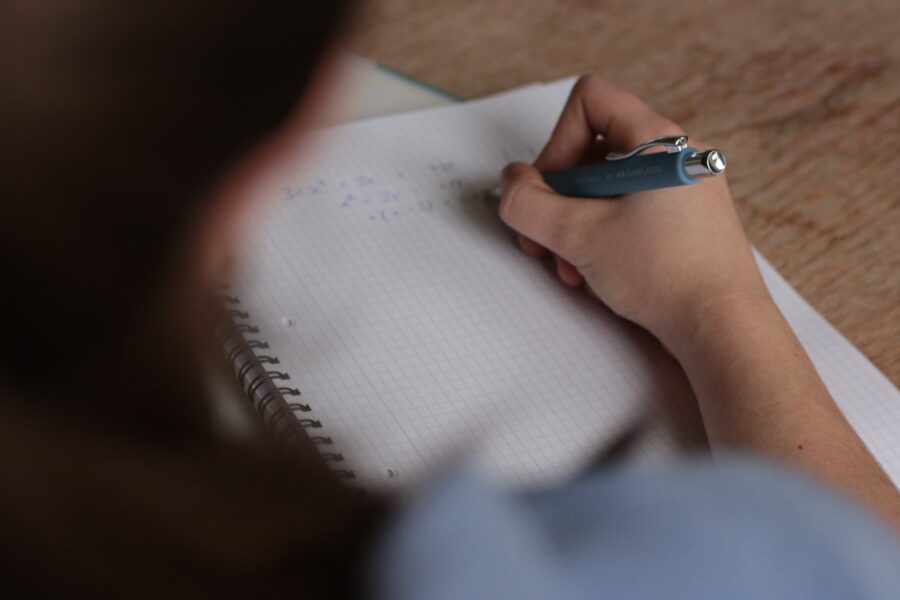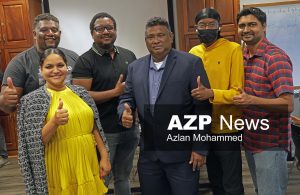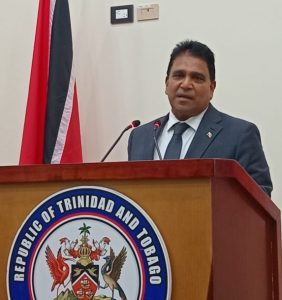
HEY kid, feeling down you didn’t get into your first choice school?
Don’t feel too bad, don’t let one exam define your path in life.
A lot of great people didn’t pass for their first choice. I didn’t, and surprise, surprise I think I turned out just fine! I ended up doing pretty well in school and actually ended up doing better than some people who went to their “first choice” school.
But seriously, congrats to all kids who sat the exam, pass or not, you will be okay.
There are a lot of issues with the Secondary Entrance Assessment (SEA) exam from putting an unnecessary amount of stress on 11/12-year-olds to the exam not catering for students who learn differently.
An issue that I have been wrestling with this past week is the inequity of the SEA exam (and most of our education system to be honest).
Yes, everybody gets the same exam, but those with means will almost always do better than those without. Those without, who are most indeed of a strong education to better their future, are sent to schools, that aren’t bad, but are lacking in support compared to their “first choice” counterparts and are often negatively stigmatised.
Here is an example. Let’s look at two boys Tony and Tommy. If you were to give the boys an intelligence test, they would receive the exact same scores, however under the current system, one is vastly disadvantaged.
Tony is from an upper-middle-class family, both of his parents have high-paying jobs, he goes to a private school and his parents pay for all the extra lessons he needs to prepare for the exam.
Tommy isn’t poor, but his parents live paycheck to paycheck. He goes to a public school that does what it can do to adequately prepare students for the exams. However, like Tony, Tommy needs a little extra help and/or someone to sit with him and study.
Unfortunately, extra lessons are not something his parents afford, they try their best to help him but with the ever-changing methods of teaching they often find themselves struggling as well.
Exams come along and Tony excels. He gets into his first-choice school, along with other boys from similar backgrounds. The school he attends has benefitted from an involved parent base, who work to raise funds to enhance the school. They have the time, connections and the money to do so.
Tommy doesn’t do as well, it’s not that he isn’t as smart as Tony, he just wasn’t able to get the extra help he needed to get the marks. The school he got into is not a bad school (there are no bad schools), however due to limited funding, overcrowded classrooms, demoralized teaching staff and lack of support and partnerships, Tommy is not given the same educational opportunities as Tony.

He will have to work harder, with little to no help, to do as well as Tony. When they both graduate, even if their marks are similar, Tony will always have the upper hand because of the school he went to, whereas Tommy will have to battle the unwarranted stigma that he wasn’t bright enough to get into a “first choice” school.
It is the children like Tommy that need the most help, that need the resources made available in prestige, heavily supported schools. School, for Tommy, should be a place where can take the steps to create a better future for himself through a fair education. Sadly, for thousands of children in T&T a fair education is not a reality.
The SEA exams continue to highlight the inequity of our education system. If all children had access to tutors and other support systems, then no child would go into secondary school unprepared or at a disadvantage.
What should happen is through continuous assessment the system should do focus how a child learns and from there determine the school that would best suit them. Not this “smart children go here, and not smart children go there” rhetoric. Because guess what I’ve met some brilliant people in life, who just weren’t exam takers as children, and didn’t get into a prestige school.
Do you know how damaging this is to a child’s self-esteem? “Oh, I didn’t do good in SEA, I guess that means I am not as bright as my friends who got into their first choice.” No Jimmy, it’s not that you aren’t “bright” it’s that exam is set up to benefit one type of learner (that truly no one 100% is) and unless you are freakishly intelligent or have had a world of lessons and other support, you have been set up to lose.
It’s horrible.
Secondary school placements should be based on continuous assessment over time. Different methods of learning should be accounted for, different home backgrounds, should be accounted for. No child should be made to feel they are less intelligent than their peers and carry that with them to secondary school, which then creates a whole other plethora of problems.
And our secondary schools should cater to different ways of learning, not everyone is built to read what is in their textbook and regurgitate it onto a piece of paper in a high-stress, time-limited exam. Hands-on learning, skills learning, these should be made available.
The SEA exam is yet another example of blaring inequity within our society. Our systems need to change to ensure all children are given equal opportunities in education, because currently those who are most in need of the best educational environment possible, are being blocked because of one stupid exam.
![]()












